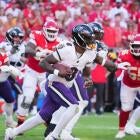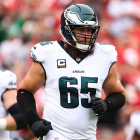2024 NFL offseason topics that no one is talking about: Dolphins' OL depth, Jaguars' play-calling questions
Some overlooked storylines going into the summer
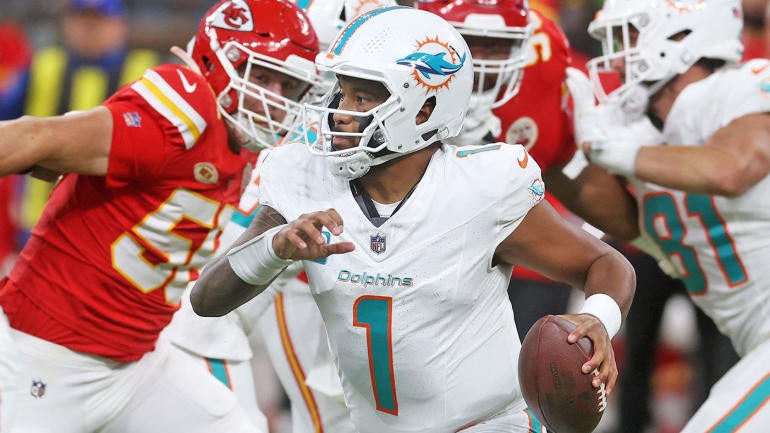
The NFL offseason moves quickly, in some sense. The quiet period between spring workouts and summer training camp, however, proves that even the hottest storylines can become tired: How many times, after all, can we dissect, say, anything Aaron Rodgers does without it bordering on annoying?
On the flip side, maybe there are other key storylines we're simply overlooking. Here are five to consider ahead of the 2024 campaign:
Forget Tua; what's the Dolphins' backup QB, OL plan?

Yes, Tua Tagovailoa's contract is a big deal, regardless of whether you believe the quarterback is worthy of market-inflated money. Lost in all the scuttlebutt regarding his value, however, is the fact Miami enters 2024 with one of the most questionable backup quarterback and offensive line situations in the NFL. Where is the security blanket for Tua up front, or the insurance behind him?
Left tackle Terron Armstead is accomplished, but he's also missed an average of 6.5 games per year (!) over the course of his career. Gone are interior men Connor Williams and Robert Hunt, replaced in part with Isaiah Wynn, who's played more than 10 games just once in his career. At backup quarterback? Mike White once captivated New York for simply not being Zach Wilson, but he's won two of seven career starts while throwing nearly as many picks (13) as career games played (14). For a team that probably views itself as a Super Bowl contender, those are key spots to be sorely lacking depth.
The Seahawks might have a top-10 roster
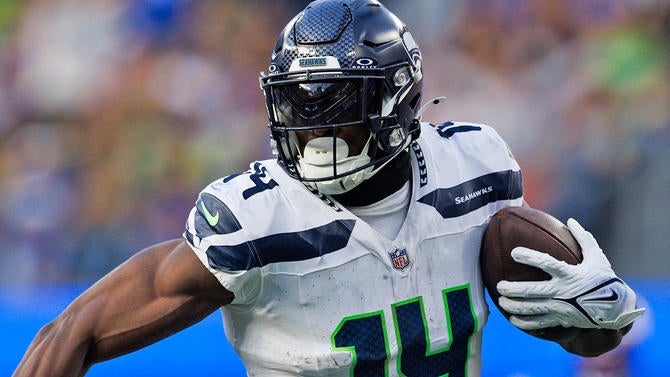
Quarterback is a legitimate question here, as Geno Smith, 34, predictably fell back to Earth in 2023, one year after his Comeback Player of the Year revival. Ditto for the offensive line, whose holes contributed to Smith's recent bumps and bruises. Take a peek at the skill talent, however, and it's hard not to call Seattle one of the deeper lineups in the NFL: the explosive Kenneth Walker III at running back, and the three-headed monster of DK Metcalf, Tyler Lockett and Jaxon Smith-Njigba out wide.
Despite his turnover flare-ups, Smith still showed a penchant for crunch-time darts in 2023. And he should have an even bigger help on the other side of the ball this year, with former Baltimore Ravens defensive coordinator Mike Macdonald taking over atop the staff. Macdonald's presence alone boosts the stock of an underrated defensive depth chart featuring potential difference-makers at every level, including Leonard Williams, Tyrel Dodson and Devon Witherspoon. A surprise NFC West bid could be in play.
Who's calling Trevor Lawrence's plays?
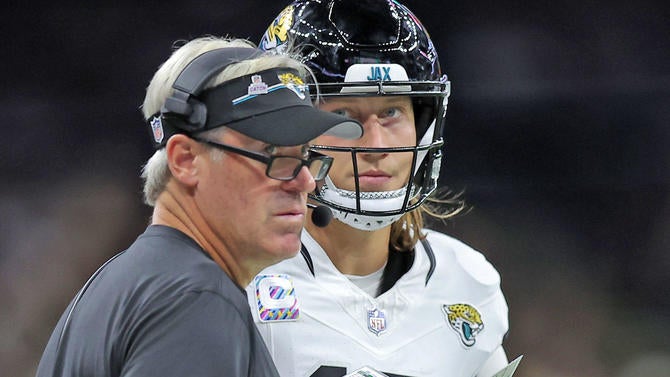
Everyone has an opinion about Lawrence cashing in with a $275 million extension, but maybe it's time to figure out exactly who is going to be responsible for orchestrating the former No. 1 draft pick's offense. After shuffling Lawrence's receiving corps this offseason, welcoming Gabe Davis and Brian Thomas Jr. in favor of Calvin Ridley, the Jacksonville Jaguars have been mum about the quarterback's play-caller for 2024, with coach Doug Pederson repeatedly eluding questions about the role this offseason.
Why is this relevant? Because Lawrence took a noticeable step back in 2023, offensive coordinator Press Taylor's first year as the full-time play-caller. Pederson previously split decision-making with Taylor in 2022, which has many thinking the head man could reclaim the responsibility for himself. Another layer here: Pederson's relationship with Taylor was reportedly at the crux of his abrupt split from the Philadelphia Eagles years ago; once revered for his offense, Pederson's unit grew stale in 2019-2020, and his insistence on making Taylor a coordinator contributed to the Eagles' decision to move on.
Running backs are fashionable again

Just a year after running backs literally hosted meetups to brainstorm their stark devaluation across the NFL, ball-carriers have quietly restored their place as a vital piece of contemporary offense. It started in March, when a deep crop of free agents essentially blew recent running-back deals out of the water; seven different backs signed deals worth at least $5 million per year -- the most in a half-decade -- and Pro Bowlers like Josh Jacobs and Saquon Barkley commanded tens of millions from contenders. The Patriots also reportedly reached a four-year, $36 million extension with Rhamondre Stevenson.
That was just the start. In the draft, even more playoff hopefuls, including the Green Bay Packers and Los Angeles Rams, spent early-round picks on added running back depth. Others, like the Carolina Panthers, signaled intentions to rebuild around the ground game. And then the reigning NFC champion San Francisco 49ers sealed the deal by rewarding Christian McCaffrey -- the face of the position -- with a brand-new deal setting a new benchmark for annual earnings at the position.
The new kickoff rules are totally foreign
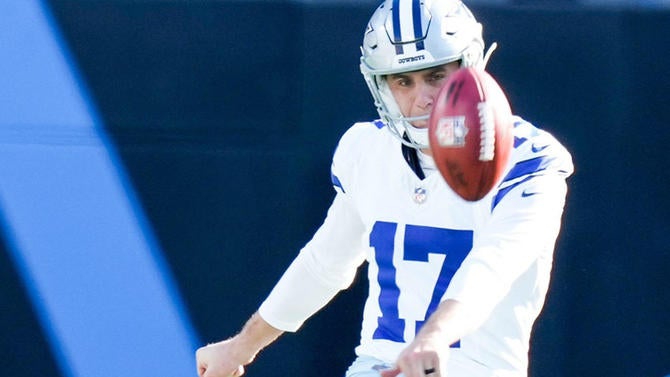
Let's be real here: How many of you actually understand the new kickoff rules? How many casual fans have already forgotten the new rules exist? There's been plenty of talk in NFL leadership circles about the potential impact of the league's trial-run revamp, which is designed to re-incentivize kick returns after years of essentially phasing the return play out of the game. We're probably not talking enough, however, about the intricacies of the new play, what with its "setup zone," "landing zone" and ball placements.
Some teams, like the Atlanta Falcons with Ray-Ray McCloud III or the Pittsburgh Steelers with Cordarelle Patterson, have been unsubtle in efforts to get ahead of the curve, reinstalling proven return men in advance of the new-look kickoff's debut. Even so, it's a safe bet that, come the preseason and especially Week 1, thousands upon thousands will show up to stadiums or tune in on TV, only to require a thorough refresher -- or first-time explainer -- on why, for example, a kick that doesn't reach the 20-yard line cannot be returned and automatically puts the returning team at its own 40-yard line.














